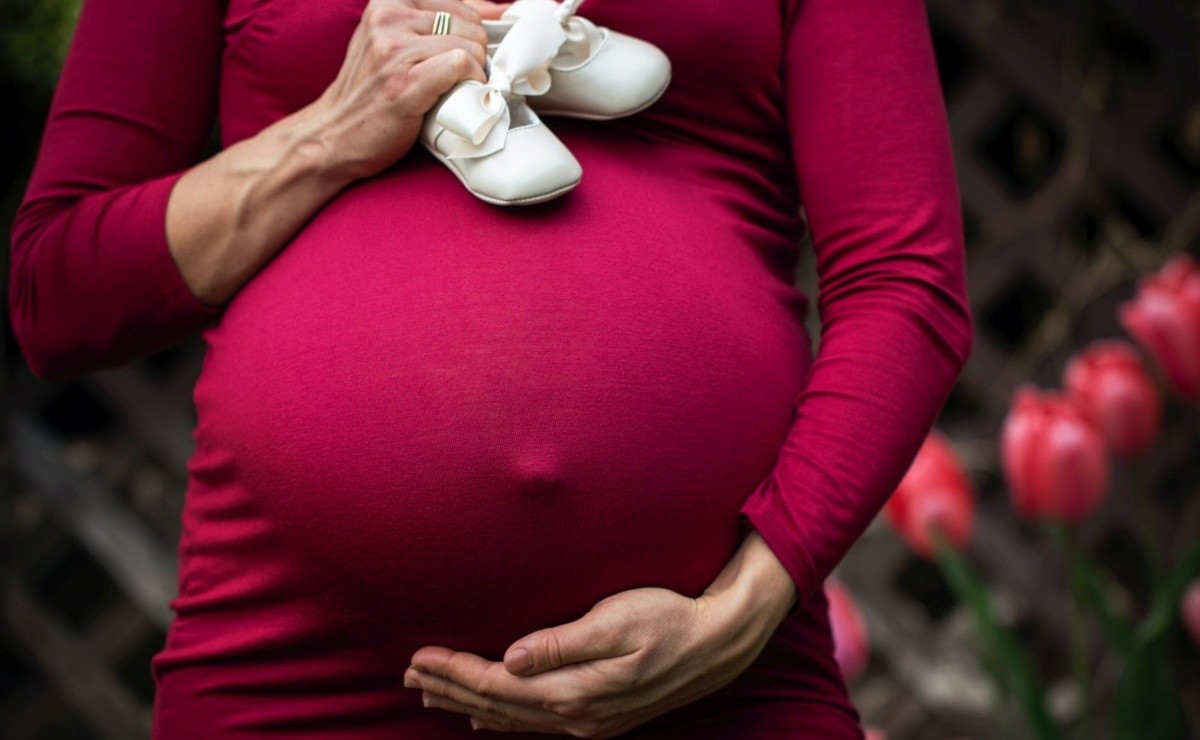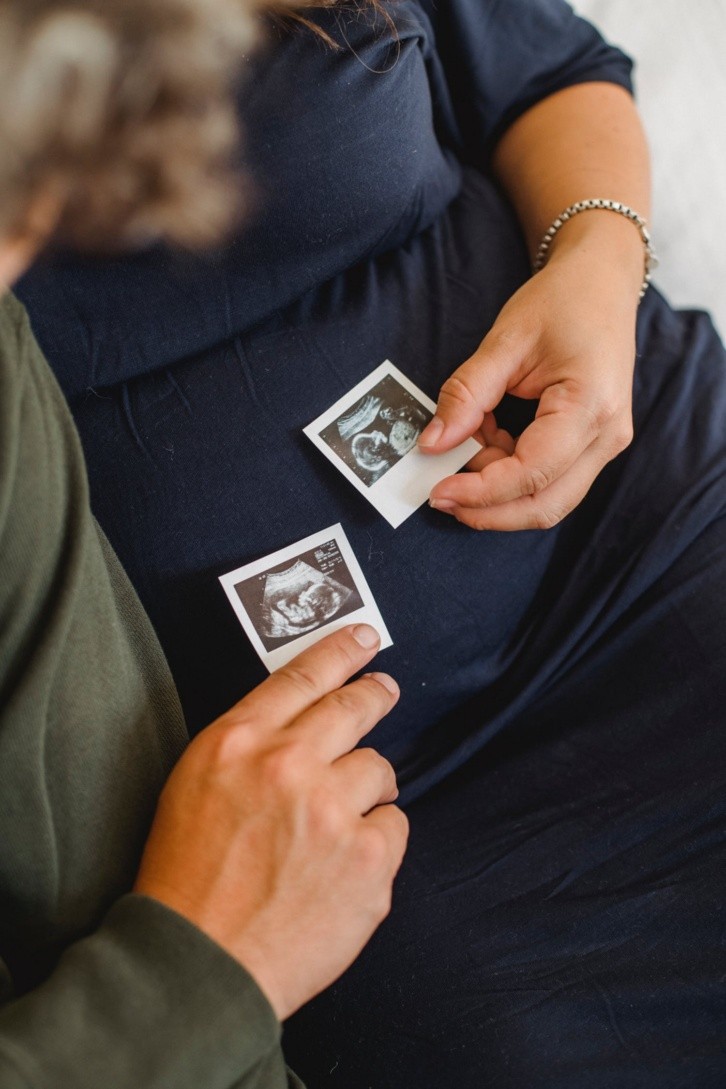
"The period of embryonic and fetal development, also during delivery, represents a certain risk for the baby against various infections, mainly caused by parasites, viruses and bacteria", mentions Dr. Manuel Sánchez Luna, head of the Neonatology Service of the Gregorio Marañón General University Hospital in Madrid
A pregnant woman could become infected with parasites. When eating raw meat or consuming poorly washed vegetables, this requires special care, says Dr. Manuel Sánchez Luna, head of the Neonatology Service at the Gregorio Marañón General University Hospital in Madrid. We show you everything you need to know about the great danger your future baby runs if the necessary care is not taken.
“It is well known by the general population, especially women, that the placenta and amniotic membranes protect the development of the embryo and fetus from infections; however, in some cases microorganisms (protozoa, viruses or bacteria) manage to be successful, giving rise to different health problems depending on the moment of gestation ”, he points out.
The earlier the infection, the greater the risk of intrauterine death of the future baby or of suffering very serious sequelae. When infections occur late, closer to the time of birth, the clinical pictures observed are different.

"From a smaller number of malformations or birth defects to serious processes that can lead to late fetal death or condition the life of a newborn with very serious physical problems," specifies the neonatologist, also president of seNeo.
The danger of toxoplasmosis, escherichia, and cytamegalovirus in your baby
Due to its importance, the most known and feared infection by parasites is congenital toxoplasmosis. This eukaryotic protozoan, toxoplasma gondii, a unicellular organism, is acquired when the pregnant woman enters its circle of life.
It is normally acquired by eating raw, poorly cooked or unprocessed meats, but the infection can also be caused by eating contaminated and poorly washed vegetables.
"This parasitic infection is less and less frequent and its surveillance during pregnancy is mandatory for those pregnant women who have not been in contact with the parasite previously and, therefore, are not immunized," says Dr. Sánchez Luna.
The baby is at greater risk of infection in the third trimester of pregnancy and less during the first, but its effects will be more serious in this period of gestation: fetal death or spontaneous abortion.
“When the fetus survives, the result, in many cases, is a serious damage to the central nervous system, liver and blood involvement. When the infection is acquired late in pregnancy, toxoplasma is capable of producing an infectious picture similar to that produced by bacteria in newborns ”, he describes.
Some of the babies born with toxoplasmosis do not usually show signs of the disease until adolescence or other adult stages. They will develop hearing loss, mental disability, or eye infections of varying severity.
Bacterial infections are generally responsible for severe generalized disease and sometimes infections of the central nervous system.
"In the past, the most frequent cause was infection of the fetus by group B Streptococcus bacteria at the time of birth, that is, when the baby passes through the birth canal of a woman carrying this bacterium," he explains.
These bacteria can cause meningitis (infection of the lining of the brain and spinal cord), pneumonia (infection of the lungs), and infection of the skin and other soft tissues.
“But since the early detection programs for this bacterium began through vaginal-rectal screening between weeks 35 and 37 of all pregnant women, this infection has practically disappeared in newborns, since colonized mothers are treated with penicillin when the birth process begins ”, he details.
At present, Escherichia Colli, gram-negative, a bacterium from the family of Enterobacteriaceae that are part of the microbiota of the gastrointestinal tract, is responsible in our environment for vertical infections, especially in those born prematurely.
“Among bacteria, Listeria Monocytogenes is, although rare, a devastating cause of infection, especially in preterm births. This bacterium is transmitted from foods with milk or raw cheeses, raw meats and other contaminated foods ”, points out the neonatologist doctor.
Listeriosis infection during pregnancy would cause spontaneous abortion before the 20th week of gestation, the birth of a stillborn child from the 20th week, premature birth or perinatal mortality (from the 28th to the first week of life).
Also highly noteworthy are bacterial infections through sexual transmission, such as chlamydia, gonorrhea or syphilis, three microorganisms that cause premature birth, low birth weight of the baby or various pulmonary and ocular complications, even blindness .
Premature baby after leaving the incubator. Photo provided by the Gregorio Marañón General University Hospital in Madrid.
Finally, viral infections represent a broad spectrum of serious infections before birth. The most prevalent today is cytomegalovirus infection.
This microorganism (CMV) remains in our body throughout life, although it does not usually cause health problems. It is present in many body fluids. Pregnant women can unknowingly pass the virus to the fetus causing a congenital infection.
"In women who have not suffered from cytomegalovirus, infection during pregnancy can cause abortions, fetal death, serious malformations, especially of the brain, retinal damage and deafness", relates Dr. Sánchez Luna.
“When the infection is late, sometimes – he specifies – the newborn will be born asymptomatic, but with sensorineural deafness. Hearing screening can help to detect these children early. Other times, however, deafness can appear later in childhood development. "
Other viral infections such as those caused by herpes, zica, chickenpox, human parvovirus type B19 or hepatitis B are less frequent but equally serious.
In the case of genital herpes, for example, we speak of a high risk factor for the fetus, potentially fatal, especially during childbirth. This virus causes brain damage, blindness, and damage to different organs in the baby.
Dr. Manuel Sánchez Luna For the head neonatologist of Madrid Gregorio Marañón, in any case, fortunately, the baby will develop and be born under the invisible protection of the mother, a guarantee underlined with antibodies, placenta and amniotic fluid.
“Still, we have to bear in mind that the embryo, fetus and baby are extremely fragile during pregnancy and delivery. In some cases, these barriers can be easily crossed by infectious agents. Therefore, it is extremely important to be in the hands of the best professionals ", he emphasizes.
“Before, during and after pregnancy, a very strict follow-up must be carried out and all those factors that may come to condition fetal development must be prevented; possible affectations that, a posteriori, would lead to serious pathologies for babies ”, he concludes.